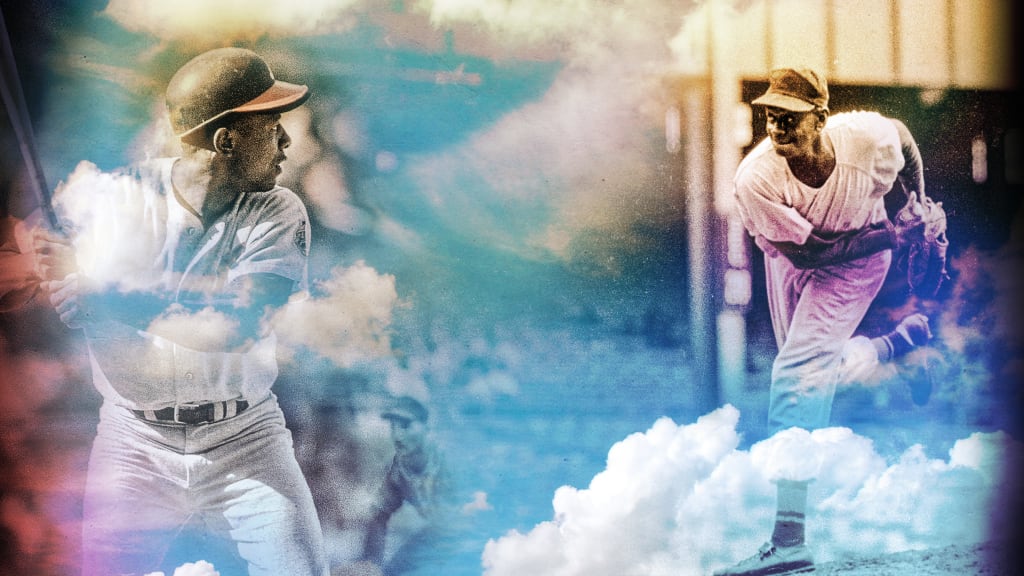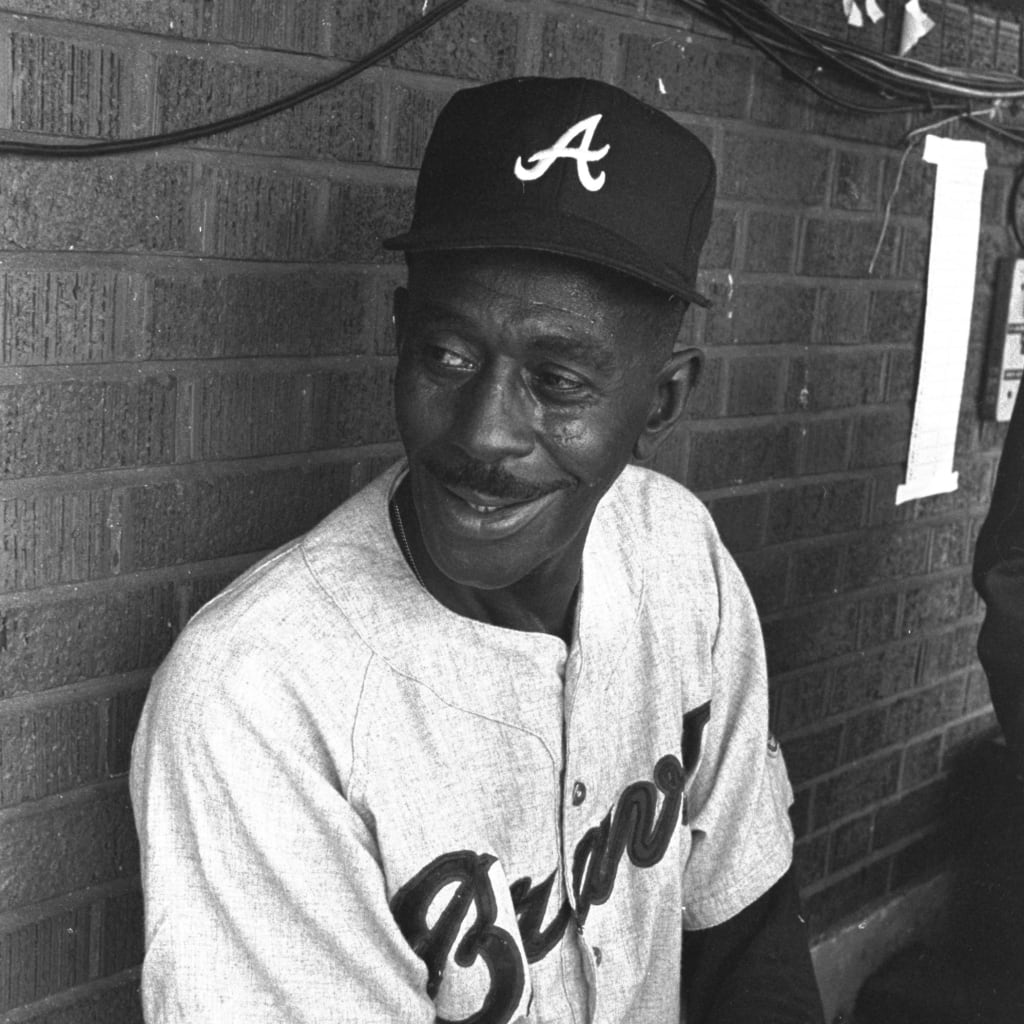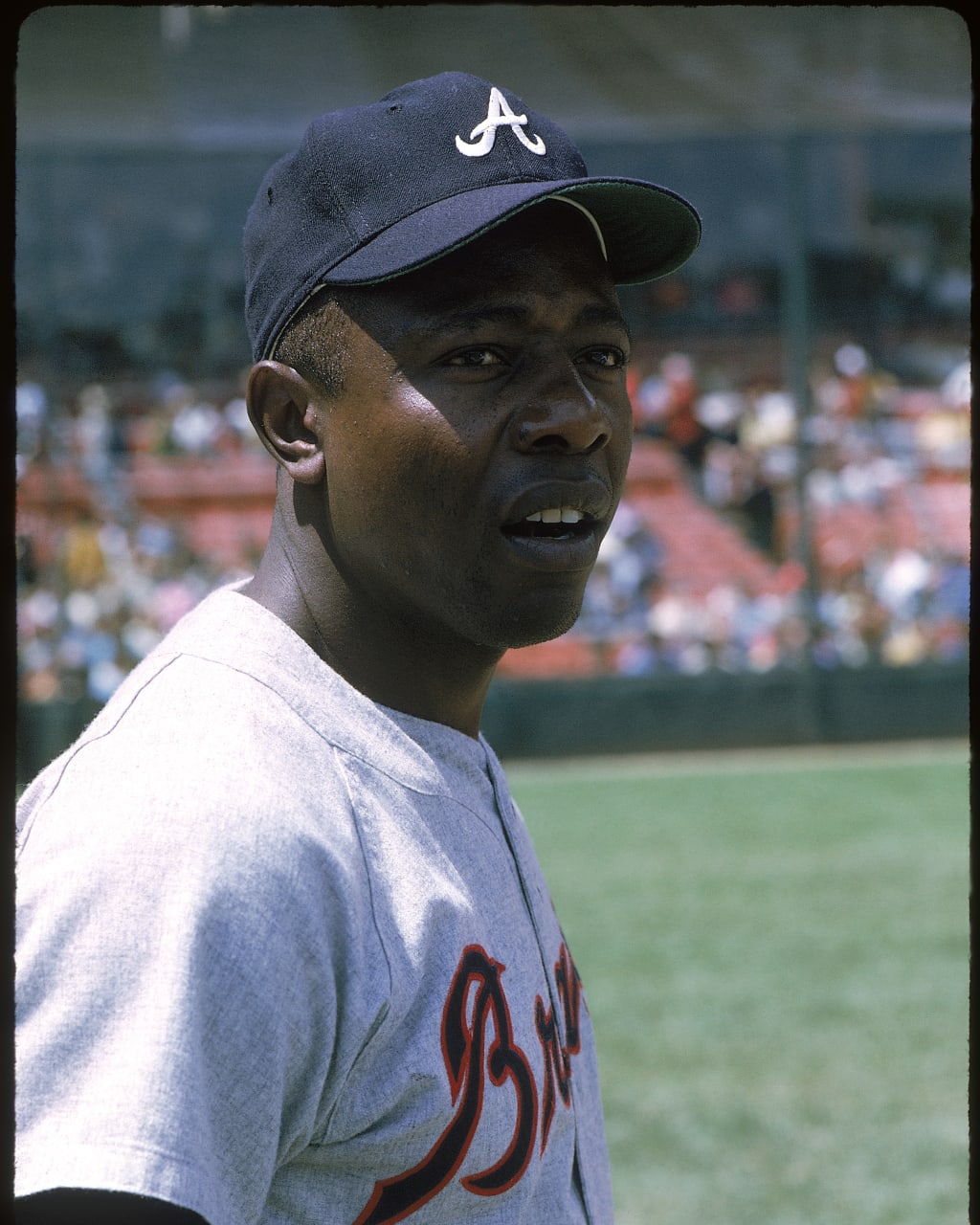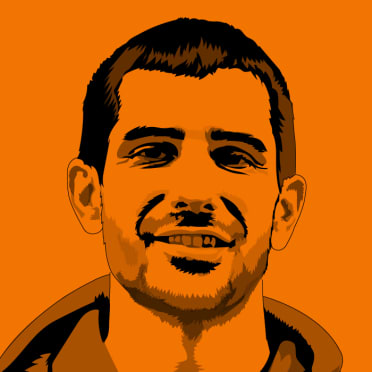
A version of this story originally ran in February 2021.
The two old friends looked at each other, probably trying not to crack a smile.
Hank Aaron, 34 years old and fresh off a year where he led the National League with 39 homers, stepped into the box. Confident, but also a bit reticent knowing the reputation and confounding what-will-he-do-next nature of the man he faced 60 feet, six inches away.
The pitcher was the inimitable Satchel Paige. He was old enough to be Aaron's father -- maybe 62, maybe 65, he could've been 70. It didn't matter. His fastball may have slowed, but his control was pinpoint. His stamina weakened, but his knowledge of how to get hitters out only increased. He had more pitches than fingers and toes.
How did this moment happen? How did one of baseball's greatest sluggers wind up hitting against one of baseball's greatest, and most famous, pitchers who was 30 to 40 years older than him?
The matchup came to fruition because of a roster technicality. As most baseball fans know, Paige became a legend in the Negro Leagues and while barnstorming during the 1930s and '40s, but he didn’t make his Major League debut until 1948, a year after Jackie Robinson broke the color barrier for the Brooklyn Dodgers. Paige was 41 when he debuted with the Cleveland Indians, going 6-1 with a 2.48 ERA in 72 2/3 innings. He appeared in parts of six MLB seasons over the next 17 years and made his last big league appearance in 1965 for the Kansas City Athletics. He was 58 that season with the A's and pitched three innings in one game, giving up zero runs and one hit.
But before he could officially retire, the ageless wonder still needed 158 days on a Major League roster to qualify for a pension. Nineteen teams said no until Atlanta Braves owner William Bartholomay stepped in to sign the Negro Leagues legend in August 1968.
“Satchel Paige is one of the greatest pitchers of all time,” Bartholomay told United Press International. “Baseball would be guilty of negligence should it not assure this legendary figure a place in the pension plan.”
Although he signed on as a coach/trainer for the pitching staff, players on the team don't remember it being that way.
"He didn't really work with anybody, he just hung around," former Braves pitcher George Stone laughed over the phone. "He did throw a little bit though, and, let me tell you, the guy could still pitch."
And that's what he wanted to do. Keep pitching. That was his plan all along.
“I’ll just have to go out and see if I can unfold,” the pitcher said at the time of the signing. “If I can throw half as good as I could last year, then I know I can still get ’em out. But that’s just something I’ll have to see.”

But he was also there as a baseball ambassador during those last few months of the '68 season -- someone who had stories from a bygone era, endless jokes and a cool libation when it was needed. From the Atlanta-Journal Constitution:
Phil Niekro, the world’s most accomplished knuckleballer, recalls Satchel sitting at the back of the plane by himself with his case on the pull-out tray. “I was going to the bathroom and he said, ‘Niekro, sit down for a second. Do you drink?’ I said that I have one now and then and he said, ‘What would you like?’ Anything I wanted was there in his little case.”
Paige apparently called 19-year-old rookie Dusty Baker "Daffy," and continued to do it even after Baker told him that's not his name. Catcher Joe Torre admired Paige's obvious "joy of living."
"It was a lot of fun," former Braves left fielder and batting champ Ralph Garr said to me over the phone. "He had so many stories, man. We'd just sit around and listen to him talk."
"I'm not sure how old he was; I don't think he knew," Stone said. "But he always had a smile, you could always talk with him. Talk with him about his past. He didn't dislike anybody, didn't hate anybody. He was just happy to be alive."
And then there was Hank Aaron. On a team full of stars, Aaron was by far the biggest and most admired.

"He was quiet, he was reserved, he was very business-like," Stone remembered. "I had a lot of respect for [Aaron]. A lot of admiration."
"Hank, Mr. Aaron, was such a wonderful man," Garr said. "He made it so convenient for us to kinda share some of the fame with him."
Garr credits his batting title in 1974 to hitting in front of Aaron and is also grateful to the slugger for getting him a post-playing job with the Braves. He, Paige and Aaron formed a unique bond during that '68 season.
"[Aaron] was a remarkable baseball player, but even better as a human being," Garr says. "He was a wonderful human being. He never taught us to be negative or vindictive -- none of that. Just keep working hard and do what's right."
So, when did the Hank Aaron vs. Satchel Paige moment happen?
Well, Paige never got the chance to pitch in a real game that season, but he did pitch a few times in some mixed Minor League exhibitions -- some in the spring of 1969, after he received his pension, and others in late '68. He gave up a couple hits here and there in his appearances, but also struck out a few batters. He even got a win. There's one account that says he faced Don Drysdale, Aaron and four others in a Dodgers/Braves mixed exhibition in September 1968. He apparently got all six out on 12 pitches, but it's hard to totally confirm. One of the hitters, Wayne Causey, told me over the phone he doesn't remember this happening and another, Jim Gilliam, would've been two years retired at that point.
Either way, he still showed off a very lively arm.
"You could tell he still had it," Garr told me, remembering how Paige used to warm up by using a gum wrapper as a strike zone. "You could tell he could pitch. You could tell he was a pitcher."
"For a guy his age, he still threw the ball well," Stone said. "He had a breaking pitch. He threw it where he wanted to, that was the amazing thing."
The most definite, well-chronicled Aaron-Paige matchup we're talking about seems to have happened in either August of '68 or the spring of '69. The Braves had another friendly intrasquad exhibition with Triple-A Richmond and Paige came in to pitch to a few batters.
Aaron stepped into the box and, according to the Atlanta-Journal Constitution, Paige smiled and threw one of his looping eephus pitches to the home run champ. Aaron tried to step out of the box for time, but the umpire called a strike -- much to Aaron's frustration.
"Henry wasn't a big talker, but he would talk about Satchel Paige," Garr said. "He knew Satchel Paige before then. He knew Satchel was a great pitcher. Anybody who ever faced Satchel knew that."
Next pitch: Another looping curve, this time even slower. Aaron didn't swing, but it was called for strike two. Now, Hank was getting disgusted.
Aaron was able to check his swing for a ball on pitch No. 3 and then, well, we'll go to Wilt Browning's wonderful AJC account for the end of the at-bat:
“Now Aaron, still glowering at his old friend, stepped forward in the box as far as rules would allow,” Browning remembered years later. “Again Paige’s pitch came floating toward the plate out of the fading light of early evening. Aaron tried to time the pitch. He made a mighty swing. The ball clicked weakly against the top of Aaron’s bat and flew softly, with little arc, to the waiting third baseman for the out. The old man pounded his bony fist into his glove with the sort of youthful joy all of us could understand.”
And that was it. That's how a retired 60-something coach got baseball's best hitter out in the prime of his career.
Aaron would hit 29 homers that season and 44 the next before breaking Babe Ruth's home-run record six years later. Stone and Garr talked passionately about their teammate's ability to do it in the face of rampant, despicable racism.
"I don't know if I could've done that," Stone said. "It takes a super person to be able to handle that. A lot of respect for a man like that."
As for Paige -- he left the Braves after that spring. And because he just couldn't stop playing, he joined the Minor League Tulsa Oilers as a coach in the early 1970s. He was there for four years (maybe into his 70s or 80s), pitching in Old-Timer Games that featured stars like Cool Papa Bell and Bob Feller.
Could he still get guys out? Hank Aaron would tell you he could.
